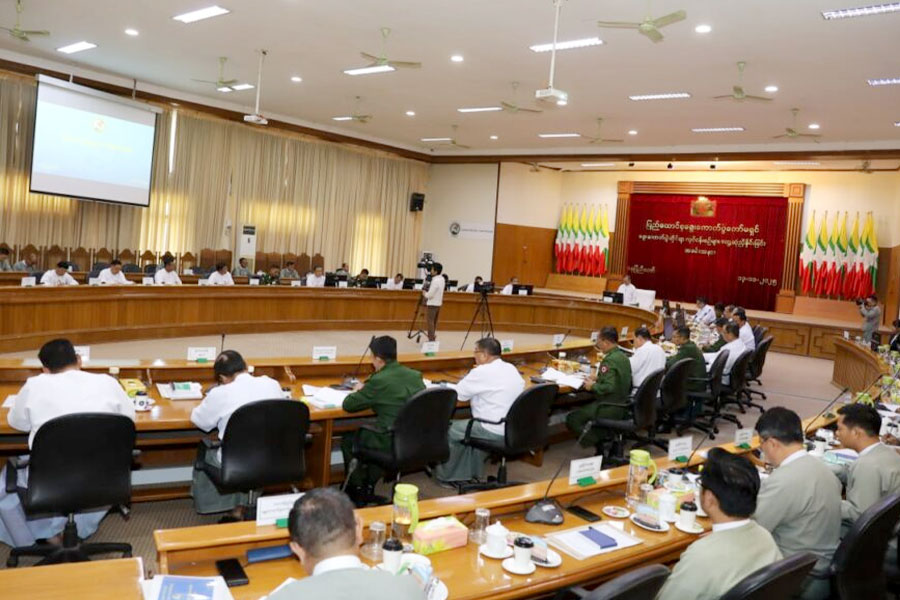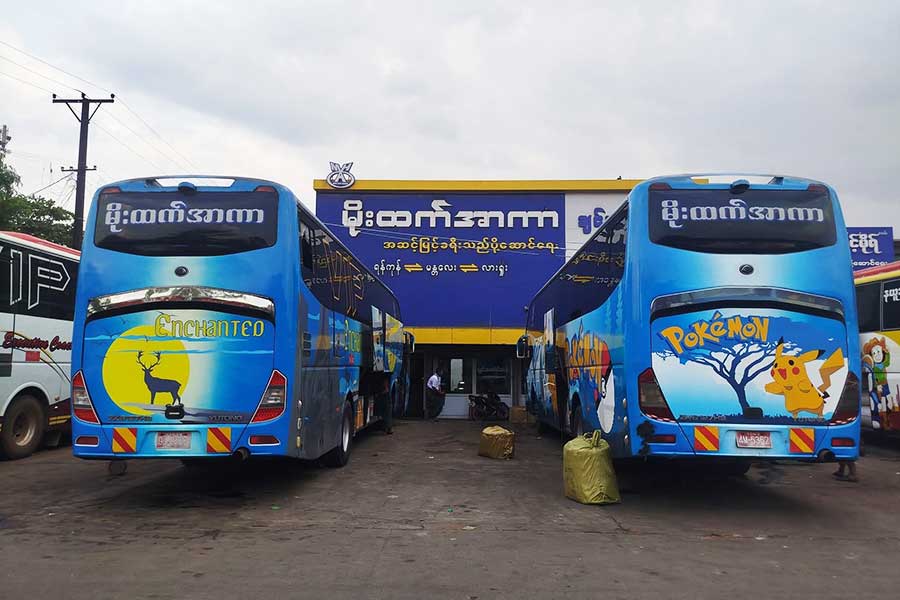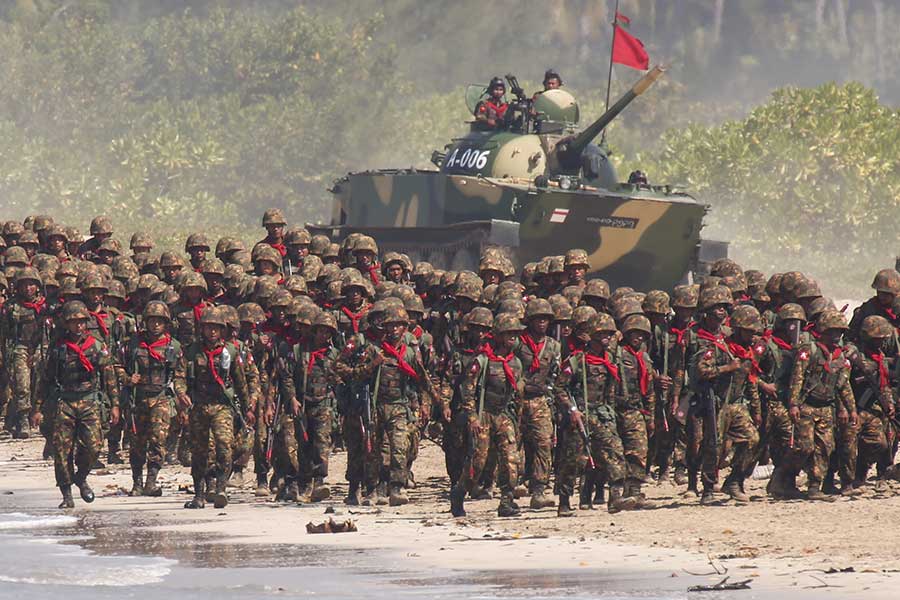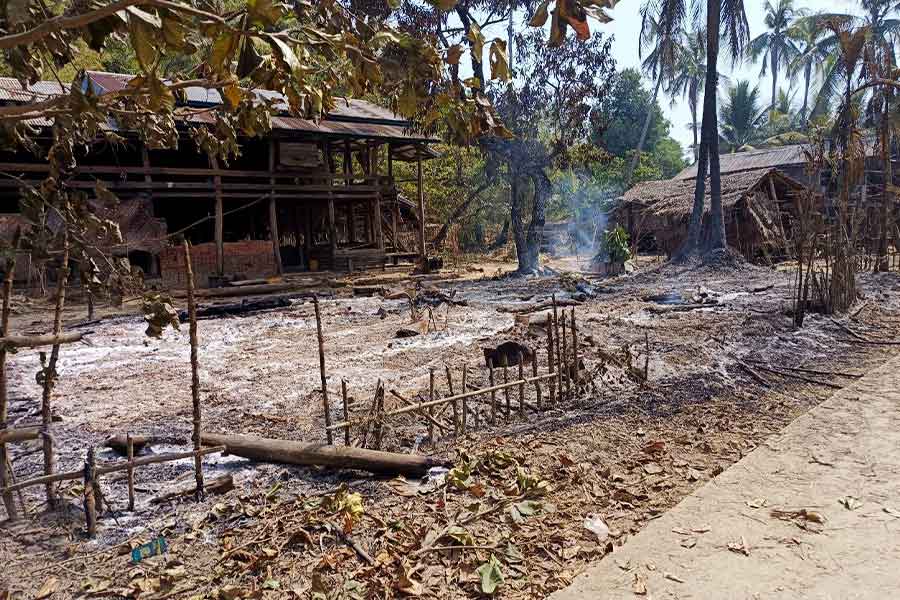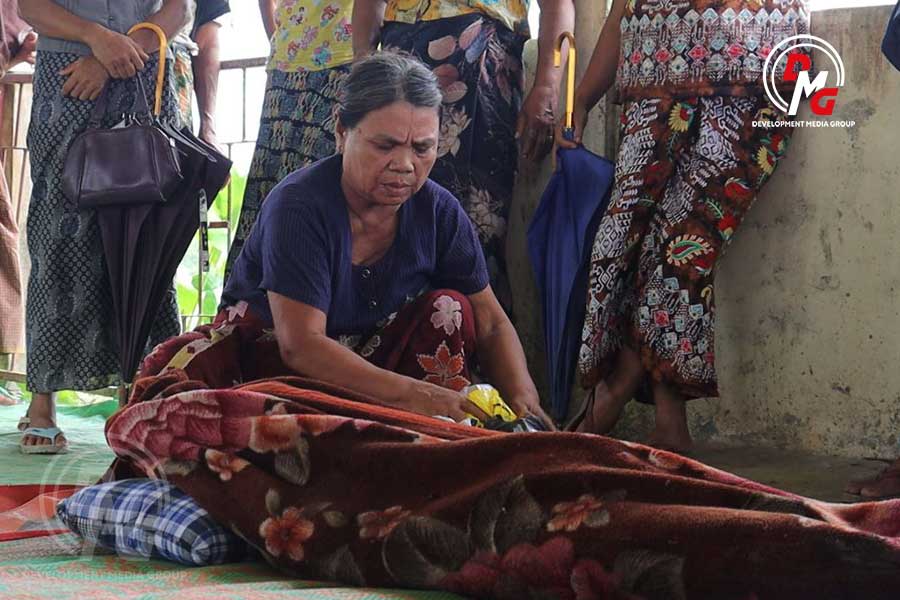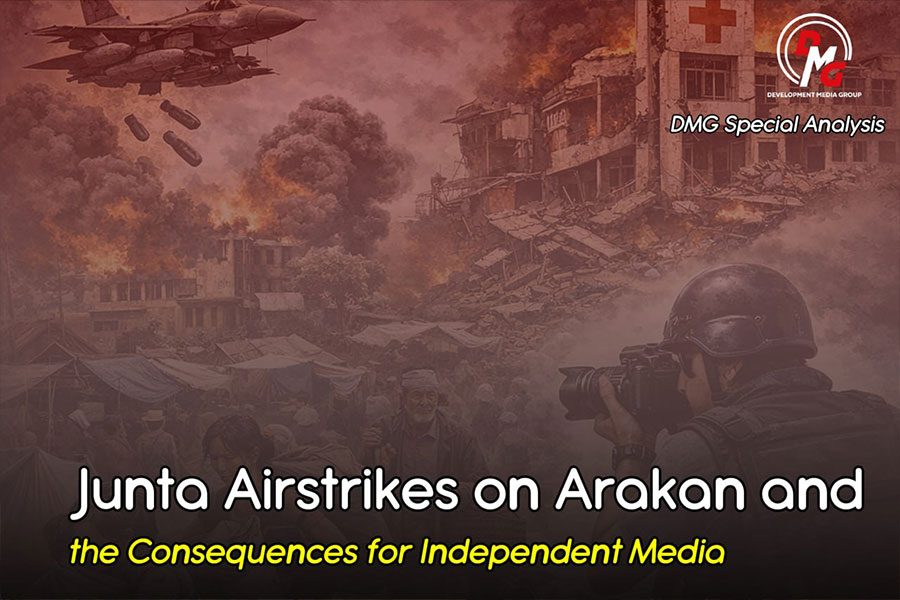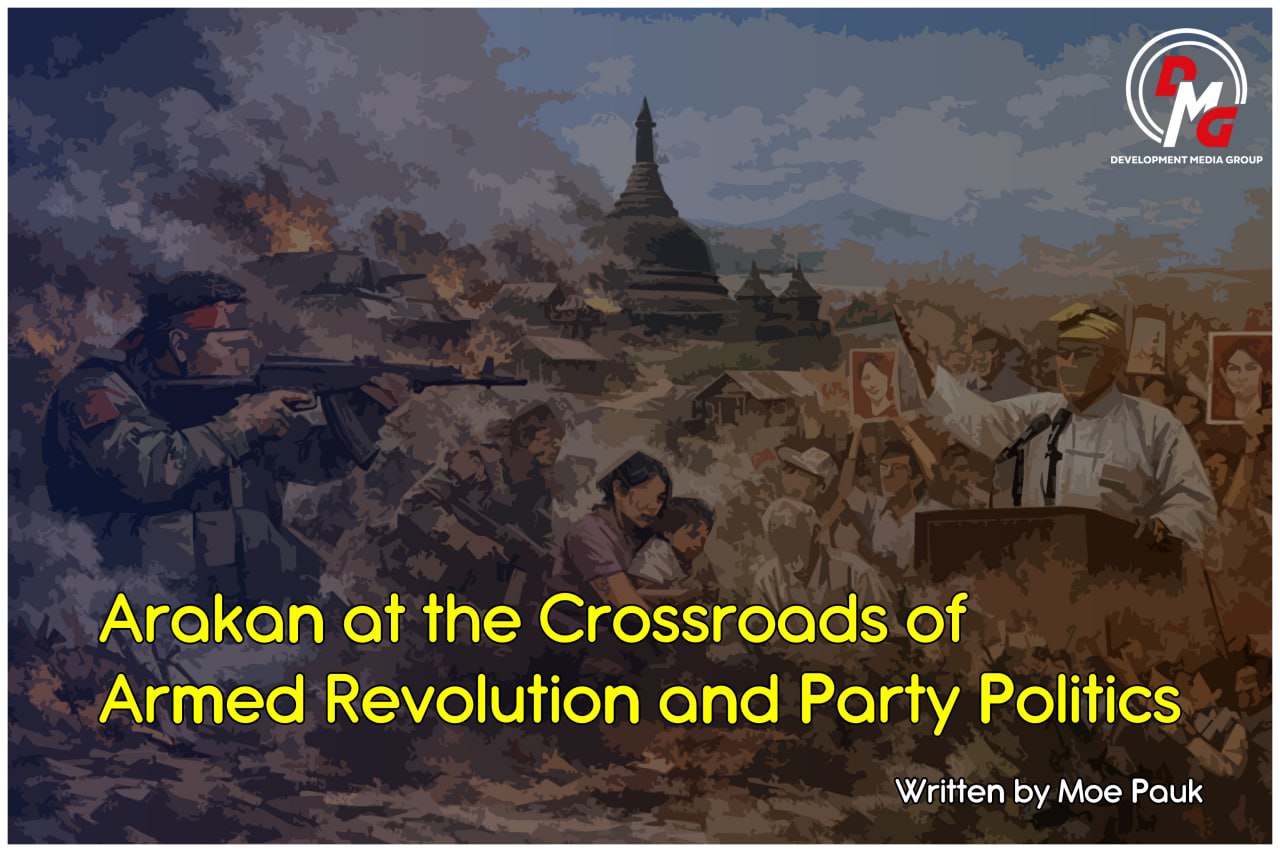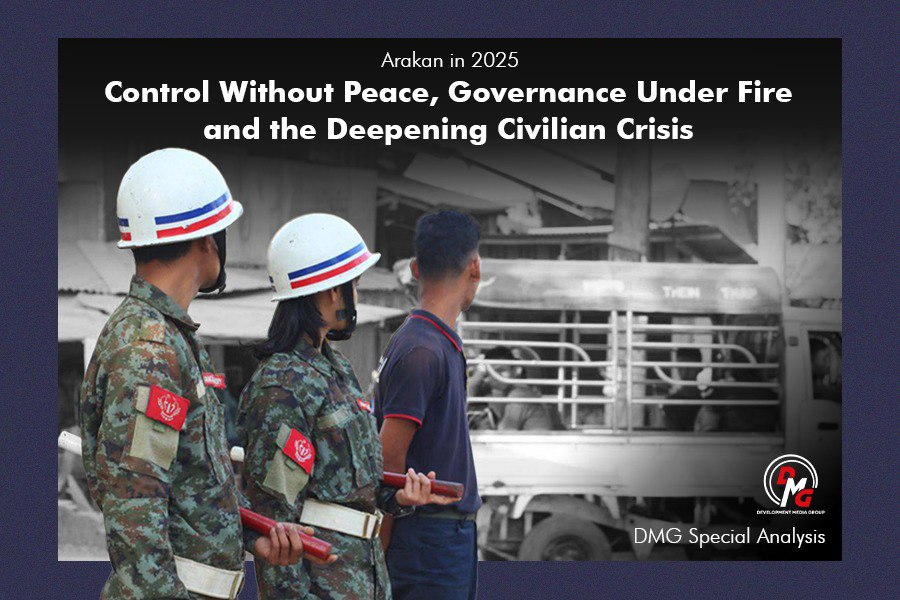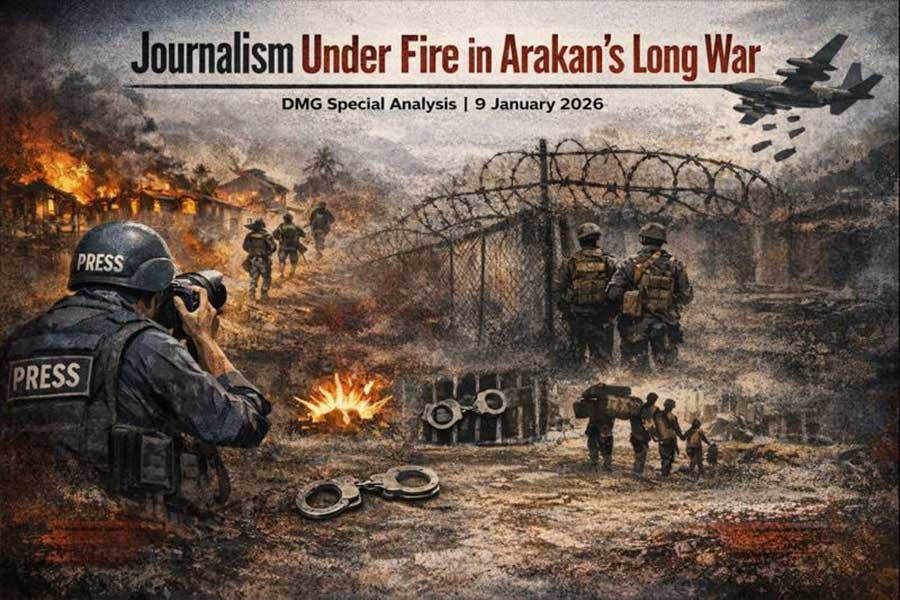- UEC announces 1,025 MPs elected in 2025 general elections
- Junta tightens travel restrictions on Arakanese people in mainland Myanmar
- Regime steps up offensive toward Arakan State via Ayeyarwady coastal route
- Elderly IDP killed, two others injured in junta airstrike on Kyaukphyu village
- AAPP urges urgent international action as junta crimes against humanity escalate
‘NCA Path’ Appears Increasingly Irrelevant in Post-Coup Myanmar
Meanwhile, the regime council on December 30, 2021, announced that it would carry out required security affairs if NCA signatories breach provisions in the agreement. EAOs that signed the NCA responded to the announcement critically, raising questions about just who was guilty of breaching the NCA.
12 Feb 2022
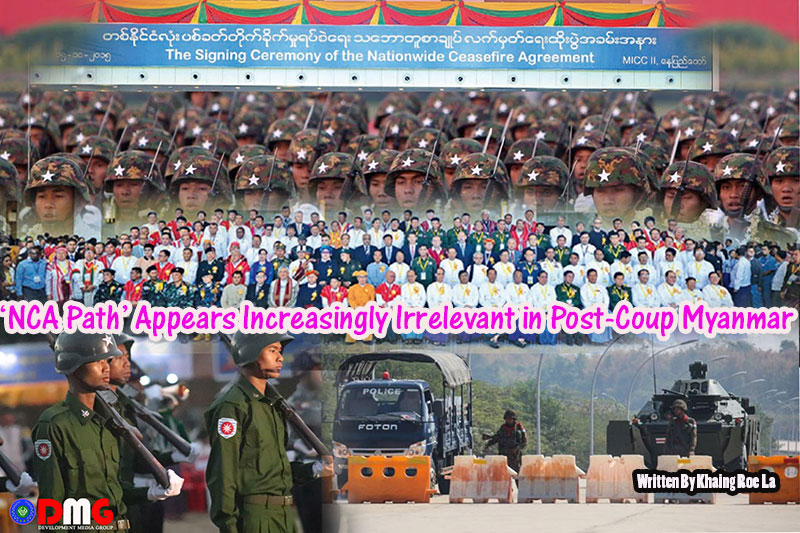
Written By Khaing Roe La
Myanmar’s Nationwide Ceasefire Agreement (NCA) was once widely viewed as a viable peace-making process using a formal negotiating framework between the government and ethnic armed organisations (EAOs). In essence, the idea was to find solutions to seemingly intractable differences through political dialogue, motivated by a sense that armed struggle had come at too great a cost for the country over several decades of civil war.
The NCA aims, in line with the results of the aforementioned political dialogue, to build a union that is based on democracy and a federal system that ensures national equality and rights of self-determination in line with the “Panglong spirit.” NCA advocates saw the agreement as important for national reconciliation and as a door to guarantee political dialogues instead of continued armed conflict, which has killed untold thousands of civilians and displaced millions more over the past seven decades.
EAOs agreed to sign the NCA with the aim of amending the 2008 Constitution, by both adding and annulling some points of the charter. However, the NCA process has come to a standstill amid Myanmar’s current political crisis.
Padoh Saw Tar Ni, head of the foreign affairs department of the Karen National Union (KNU), told DMG: “We all had agreed to address political problems as a political culture, and the chair of the regime council himself signed the NCA. But the regime council has violated it.”
The leaders of some NCA signatories now say Myanmar’s political crisis cannot be tackled via the NCA because of the coup on February 1, 2021, and the military regime’s subsequent conduct.
Meanwhile, the regime council on December 30, 2021, announced that it would carry out required security affairs if NCA signatories breach provisions in the agreement. EAOs that signed the NCA responded to the announcement critically, raising questions about just who was guilty of breaching the NCA.
Myo Win, a spokesperson for the Peace Process Steering Team (a group coordinating the 10 NCA signatories), told DMG: “Both sides are responsible for obeying the NCA. One side alone should not be forced to adhere to it. This is not acceptable. If one side threatens the other, how can the political crisis be addressed?”
The junta announcement was made following fierce clashes between its forces and the KNU, which broke out after junta troops attacked Lay Kay Kaw, a town under KNU control in Kayin State, arresting several people in the area opposed to the dictatorship. The KNU had accepted some of these dissidents, allowing them safe haven in KNU territory, on humanitarian grounds.
Padoh Saw Tar Ni said: “They entered Lay Kay Kaw about eight times. The last time, they entered with a big force. They searched and arrested the people we were protecting. We attacked as a last resort, because we cannot tolerate them vandalising the buildings in the town.”
DMG has repeatedly sought comment from Major General Zaw Min Tun, spokesperson of the regime council, regarding EAO claims that the military regime has been most responsible for violating the terms of the NCA since the coup. Those attempts have been unsuccessful.
Eight EAOs including the KNU signed the NCA on October 15, 2015, under the U Thein Sein government. The New Mon State Party (NMSP) and Lahu Democratic Union (LDU) signed the NCA on February 13, 2018, under the National League for Democracy (NLD) government.
The NCA has been in effect for more than six years. During this time, the Union Peace Conference - 21st Century Panglong was held four times, leading to the signing of Union Accord Pts. I, II and III.
Saw Mra Rarzar Linn, leader of the NCA signatory Arakan Liberation Party (ALP), said: “We have scheduled a meeting every six months. It was held under the U Thein Sein government, but subsequently the government and EAOs were not able to hold meetings due to Covid-19. And, it stopped after the military coup.”
In the aftermath of the military coup, there have been major clashes and military tensions between the Tatmadaw and the KNU, the largest and arguably most influential NCA signatory.
Moreover, the NCA specifies that political dialogues must include the government, the parliament, the Tatmadaw, political parties and EAOs, but there is no parliament at the moment. Thus, legitimate questions are raised about the relevance of the NCA as an instrument for achieving peace, when much of the framework it was built around has been undone by the February 2021 coup.
Padoh Saw Tar Ni said: “I have continuously told the media that the NCA, at the moment, is similar to a palsied patient: It cannot move at all, but it is still alive. There is no hope.”




